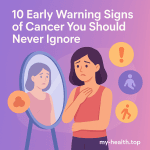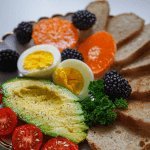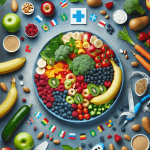This article is for informational purposes only and should not be considered medical advice. Always consult a healthcare professional for personalized recommendations.
Understanding the Connection Between Nutrition and Skin Health
Your skin is not just a protective barrier; it reflects your overall health. What you eat can significantly impact your skin’s appearance and health. Have you ever noticed how your complexion changes with your diet? Poor nutrition can lead to dullness, dryness, and even breakouts, while a balanced diet can promote a radiant glow.
Key Nutrients for Healthy Skin
To achieve healthy skin, focus on incorporating a variety of nutrients into your diet. Here are some essential nutrients that play a crucial role in skin health:
1. Antioxidants
Antioxidants, such as vitamins C and E, help protect your skin from oxidative stress caused by free radicals. Free radicals can damage skin cells and accelerate aging. Foods rich in antioxidants include berries, dark chocolate, and green leafy vegetables. For example, a daily serving of strawberries can provide a significant boost in vitamin C, which is vital for collagen production, a protein that helps maintain skin elasticity.
2. Omega-3 Fatty Acids
Omega-3 fatty acids are known for their anti-inflammatory properties. They help maintain your skin’s lipid barrier, keeping it hydrated and supple. Incorporate sources like fatty fish (salmon, mackerel), walnuts, and flaxseeds into your meals. A serving of salmon twice a week can enhance your skin’s moisture levels, reducing dryness and flakiness.
3. Vitamins A and D
Vitamin A is essential for skin cell production and repair. Foods like carrots, sweet potatoes, and spinach are excellent sources. Vitamin D, often called the “sunshine vitamin,” also supports skin health by promoting cellular growth and repair. While sunlight is a natural source, fortified foods and supplements can help if you have limited sun exposure.
4. Hydration
Staying hydrated is critical for maintaining skin elasticity and moisture. Aim for at least eight 8-ounce glasses of water daily. Additionally, consuming water-rich foods like cucumbers, oranges, and watermelon can further enhance hydration. Remember, hydration also helps flush out toxins, which can improve skin clarity.
The Pathophysiology of Skin Aging
Understanding the mechanisms behind skin aging can help you appreciate the importance of nutrition. As we age, our skin undergoes changes due to intrinsic factors (like genetics and hormonal changes) and extrinsic factors (like UV exposure and pollution). These factors contribute to a decline in collagen production, increased oxidative stress, and a decrease in skin hydration.
For instance, UV radiation can lead to photoaging, characterized by wrinkles, pigmentation, and loss of elasticity. Nutrients like antioxidants can mitigate these effects by neutralizing free radicals and supporting collagen synthesis. Thus, a diet rich in these nutrients can be a preventive measure against premature aging.
Practical Nutrition Tips for Radiant Skin
Now that you know what nutrients are essential for healthy skin, how can you incorporate them into your daily routine? Here are some practical tips:
1. Start Your Day with a Skin-Friendly Breakfast
Kick off your morning with a smoothie packed with spinach, banana, and a scoop of flaxseed. This combination offers vitamins, minerals, and healthy fats that nourish your skin from the inside out. You can also add a handful of berries for an extra antioxidant boost.
2. Snack Smart
Instead of reaching for chips or sugary snacks, opt for a handful of nuts or a piece of fruit. Almonds and walnuts are excellent choices for healthy fats, while berries provide antioxidants. Consider making a trail mix with nuts and dried fruits for a nutritious on-the-go snack.
3. Choose Whole Foods
Minimize processed foods that can lead to inflammation and skin issues. Focus on whole grains, lean proteins, and plenty of fruits and vegetables. A colorful plate not only looks appealing but also ensures a variety of nutrients. For example, try a quinoa salad with colorful bell peppers, cherry tomatoes, and a lemon vinaigrette.
4. Limit Sugar and Dairy
Research suggests that high sugar intake can exacerbate acne and other skin conditions. Consider reducing your consumption of sugary snacks and dairy products to see if your skin improves. Instead, opt for plant-based milk alternatives like almond or oat milk, which may be gentler on the skin.
5. Don’t Forget Sunscreen
While nutrition plays a significant role, protecting your skin from sun damage is equally important. Use a broad-spectrum sunscreen daily, even on cloudy days, to prevent premature aging and skin cancer. Look for products with SPF 30 or higher and reapply every two hours when outdoors.
Patient Vignette: A Journey to Healthier Skin
Meet Sarah, a 32-year-old graphic designer who struggled with dry, flaky skin. After consulting with a dermatologist, she learned about the importance of nutrition. By incorporating more omega-3 fatty acids and antioxidants into her diet and staying hydrated, she noticed a remarkable improvement in her skin’s texture and appearance within weeks. Now, she enjoys glowing skin and feels more confident in her daily life. Sarah’s experience highlights how dietary changes can lead to significant improvements in skin health.
Frequently Asked Questions (FAQs)
1. What foods should I avoid for better skin?
Avoid foods high in sugar, refined carbohydrates, and dairy, as they may exacerbate skin issues like acne and inflammation.
2. How can I improve my skin’s hydration?
Increase your water intake, consume hydrating foods like cucumbers and oranges, and consider using moisturizers that contain hyaluronic acid.
3. Are there specific vitamins for acne-prone skin?
Yes, vitamins A, C, and E, along with zinc, can help improve acne-prone skin by supporting healing and reducing inflammation.
4. Can diet really affect skin aging?
Absolutely! A diet rich in antioxidants, healthy fats, and hydration can slow down skin aging and improve elasticity.
5. How long does it take to see results from dietary changes?
Results can vary, but many people notice improvements in their skin within a few weeks of making positive dietary changes.
6. Is it necessary to take supplements for skin health?
While a balanced diet is usually sufficient, some individuals may benefit from supplements, especially if they have dietary restrictions. Consult with a healthcare provider before starting any new supplements.
7. Can I improve my skin health without changing my diet?
While dietary changes can have a significant impact, other factors like skincare routines, hydration, and sun protection are also crucial for skin health. A holistic approach is often the most effective.
Myth vs. Fact: Debunking Common Skin Nutrition Misconceptions
There are many myths surrounding skin nutrition. Let’s clarify some common misconceptions:
Myth: Chocolate Causes Acne
Fact: While some studies suggest that high-glycemic foods may contribute to acne, chocolate itself does not directly cause breakouts. Moderation is key. Dark chocolate, in particular, contains antioxidants that can be beneficial for skin.
Myth: Drinking Water Will Cure All Skin Problems
Fact: While hydration is essential, it is not a cure-all. A balanced diet rich in nutrients is necessary for optimal skin health. Think of water as a vital component of a larger picture.
Myth: You Only Need Sunscreen in Summer
Fact: UV rays can damage your skin year-round. Daily sunscreen application is crucial, regardless of the season. Even on cloudy days, up to 80% of UV rays can penetrate through the clouds.
Myth: All Fats Are Bad for Your Skin
Fact: Healthy fats, like those found in avocados, nuts, and olive oil, are essential for skin health. They help maintain the skin’s barrier and keep it hydrated.
Myth: You Can Rely on Skincare Products Alone
Fact: Skincare products can enhance your skin’s appearance, but they cannot replace the benefits of a nutritious diet. Nourishing your skin from the inside is equally important.
Key Takeaways
- Incorporate antioxidants like vitamins C and E for skin protection.
- Omega-3 fatty acids help maintain skin hydration and reduce inflammation.
- Stay hydrated with water and water-rich foods for optimal skin health.
- Limit sugar and processed foods to prevent skin issues.
- Daily sunscreen use is essential for protecting against UV damage.
References
- PubMed: Nutritional Factors and Skin Health
- WHO: Nutrition and Skin Health
- CDC: Skin Cancer Prevention
- NHS: Healthy Eating for Healthy Skin
- UpToDate: Dietary Approaches to Skin Health
- Journal of Dermatological Science: The Role of Nutrition in Skin Health
- American Academy of Dermatology: Skin Care Basics








Post a comment